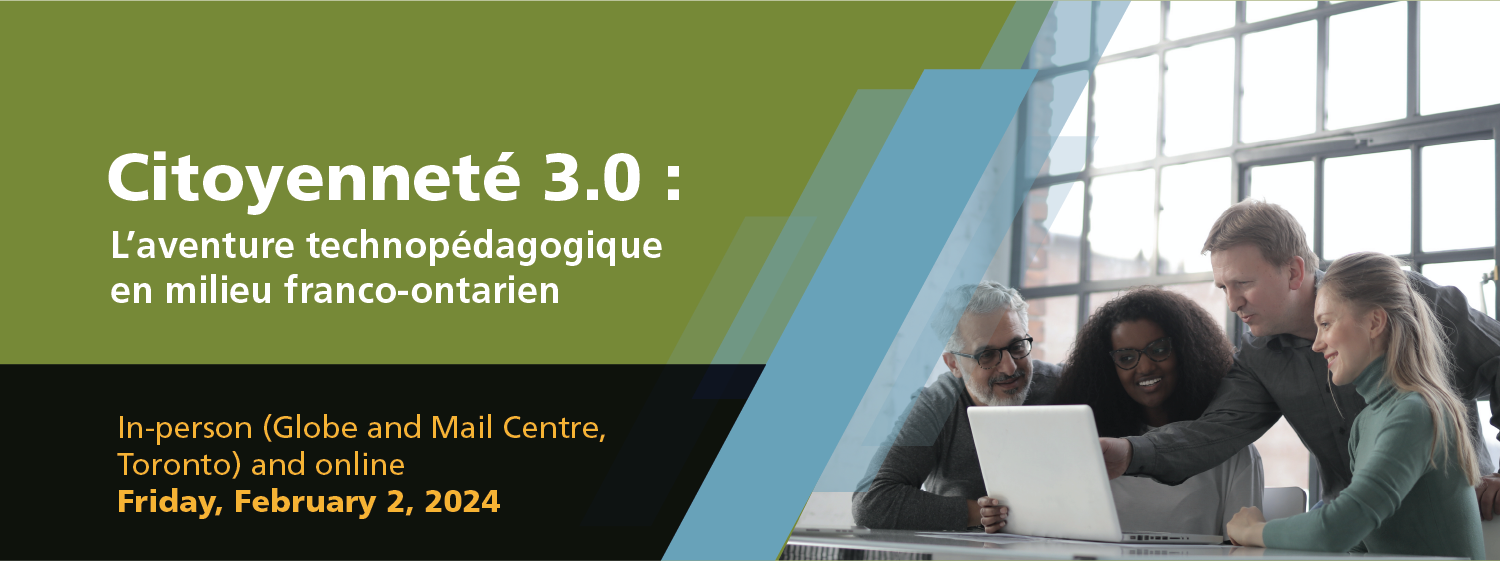Warning: Undefined variable $post in /var/www/html/rc-ecampus.ecampusontario.ca/wp-content/themes/ecampusontario/functions.php on line 183
Warning: Attempt to read property "ID" on null in /var/www/html/rc-ecampus.ecampusontario.ca/wp-content/themes/ecampusontario/functions.php on line 183
4 min. Read
Co-creating the Future
The second virtual TESS conference brought to life the theme of co-creating the future. The conference discussed hybrid teaching and learning, diversity, equity, inclusion and decolonization, and suggested actionable steps to move the postsecondary education sector forward.
The conference kicked off with remarks from the Honourable Minister Dunlop, Minister of Colleges and Universities, eCampusOntario’s Co-Chairs; Dr. Steven Murphy and Dr. Ann Marie Vaughan, and a land affirmation provided by Dr. Beverley Roy, Director of Post-Secondary Education at Kenjgewin Teg, the first Indigenous institute member of eCampusOntario. Assistant Deputy Minister Tamara Gilbert, also from the Ministry of Colleges and Universities, delivered remarks on the second day.
Dr. Robert Luke, CEO of eCampusOntario, opened the conference with the reminder that the future is flexible. Dr. Luke noted that during the pandemic, “we were all learners. We all learned to be adaptable and flexible. We had to embrace interruption. It was a humanizing experience. Today, we are all co-creators and how we collectively bring this to life is the focus of this year’s TESS conference.”
The Learner Panel showcased a returning group of learners who reflected on their journey in remote learning over the past year. While they found many benefits to learning this way, some challenges remained, such as the increased level of mental focus required for ongoing remote learning, lack of virtual networking opportunities, and dealing with challenges related to their personal lives or working environments.
A main takeaway from the panel was that as educators, we need to find ways to foster community building online so that students can develop friendships, support systems and feel more connected.
Another key message was to avoid rushing back to “how things were” before the pandemic. Hybrid learning doesn’t need to be a “temporary fix” or an interim measure, but something that can enrich in-person education. Students were enthusiastic about the hybrid learning they experienced this fall for its flexibility, new opportunities for internships, and increased accessibility.
This sentiment was echoed by Dr. Valerie Irvine in her keynote Hybrid Futures. She advocated for the postsecondary sector to avoid “returning to the old normal.” She sees the benefits of hybrid education and believes we can move forward while refining and adapting this model. The future is about looking “beyond blended.”
Dr. Andrew Campbell spoke about Community, Belonging, Inclusion and Anti-Racism. He advocated for a focus on the student to ensure a sense of belonging. Throughout his rich and passionate presentation, he gave examples of how to achieve that: working together to co-create a future where past patterns are not repeated; understanding that “the opposite of tokenism is consistency”, and that to be authentic we need to be “intentional, deliberate and build relationships while being conscious of which voice is missing.”
Colter Assiniwai, in his keynote on Decolonization, spoke from his personal experiences as a student of an Indigenous institute, presenting on how the sector can make change to better support students with similar experiences. He explained that the future of education does not lie in the past but in the future we create together, envisioning a modern decolonized classroom where learning tools are made available to everyone, both physical tools as well as modes and methods of understanding. Teachers and learners can fulfill both roles for each other. He spoke of today’s education sector and how it’s been structured for the neuro-typical and financially stable learner, but noted an optimism about how this is beginning to change due to the possibilities afforded by online learning.
He left participants with ideas on how to decolonize and contribute: find out whose lands you occupy and work with them to build trust; ask yourself what part you can play, and who is included or excluded in this vision. Don’t create policies or promises that aren’t backed with genuine action.
Dr. Robert Luke wrapped up the conference with this message: the future of education is one where collaboration is a competitive advantage – be this in supporting digital transformation, OER production and use, peer review and our larger social missions of equity, decolonization, diversity and inclusion. He encouraged all participants to be part of that future: participate in community, change, be consistent and persistent in a commitment to equity.



